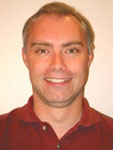
High altitude platforms
High altitude platforms (HAPs) are aircraft or airships situated in the stratosphere (from 17 to 22 km above the ground) and can be used for the delivery of wireless communications and other applications.
HAPs have the potential capability to serve a large number of users, either in dense urban areas or over a wide geographical area. They can be brought in temporarily for disaster relief or temporary coverage of entertainment events. Alternatively, as part of clusters they can become a part of permanent feature in the communications infrastructure.
They can be thought of as providing an alternative infrastructure between terrestrial systems and satellites, and can offer:
- Line-of-sight links over a wide area
- Shorter link lengths than satellite systems
- High capacities
- Very rapid deployment
- Accessible for maintenance
- Easily reconfigurable to cover short-term fluctuations in usage
We have been applying wireless communications to HAPs since 1999, coordinating or being partners in numerous collaborative academic and industrial projects, worth around £3M. According to Google scholar we are responsible for 6 out of top 10 most cited publications in the area. We are now home to the interdisciplinary Centre for High Altitude Platform Applications, which is pioneering technologies for wireless communications, environmental monitoring and atmospheric science applications.
York's Helikite USRP Testbed now features as a National Instrument's Case Study.
Projects
- Helikite Delivering Wireless Services From the Sky With USRP and LabVIEW Communications
- FP7 Aerial Base Stations with Opportunistic Links for Unexpected and Temporary Events (ABSOLUTE)
- MULTISCAN: Multi-beam Scanning Antenna for Satellite Communications
- COST 297 High Altitude Platforms for Communications and Other Services
- CAPANINA: Communications from Aerial Platform Networks delivering 'Broadband for All'
- Handoff for High Altitude Platform based Broadband Networks
- Cognitive Radio based Gigabit Communication Links from High Altitude Platforms
- Cognitive Routing for Tactical Ad Hoc Networks
- Robust Cognitive Radio Based Bandwidth Assignment for Heterogeneous Wireless Networks
- Coexistence of Heterogeneous Cognitive Radio Systems
Partners
Previous or current non-academic collaborators include:
- Advanten
- Allsopp’s Helikites
- BT
- Carlo Gavazzi Space
- Dstl
- ETRI and KARI in Korea
- ESA
- German Aerospace Centre (DLR)
- Thales Communications and Security
- NASA
- National Instruments
- NICT in Japan
- Ofcom
- Orange
- QinetiQ
- Satellite Applications Catapult
- Triagnosys GmbH
- ViaLight GmbH
Contact
Professor David Grace
david.grace@york.ac.uk
+44 (0)1904 32 2396David Grace is the former chair of IEEE Technical Committee on Cognitive Networks and he is a founder member of IEEE Technical Committee on Green Communications and Computing.

